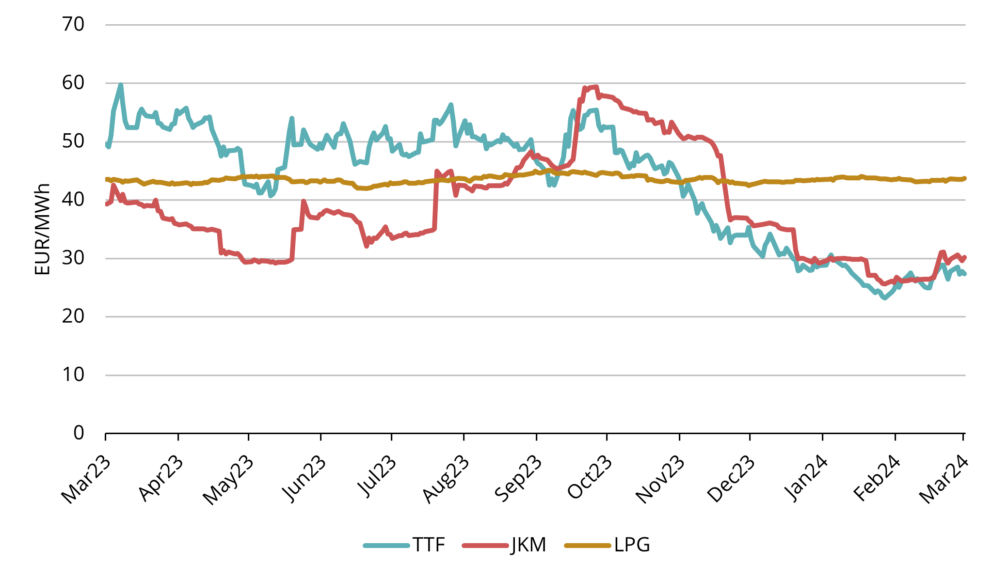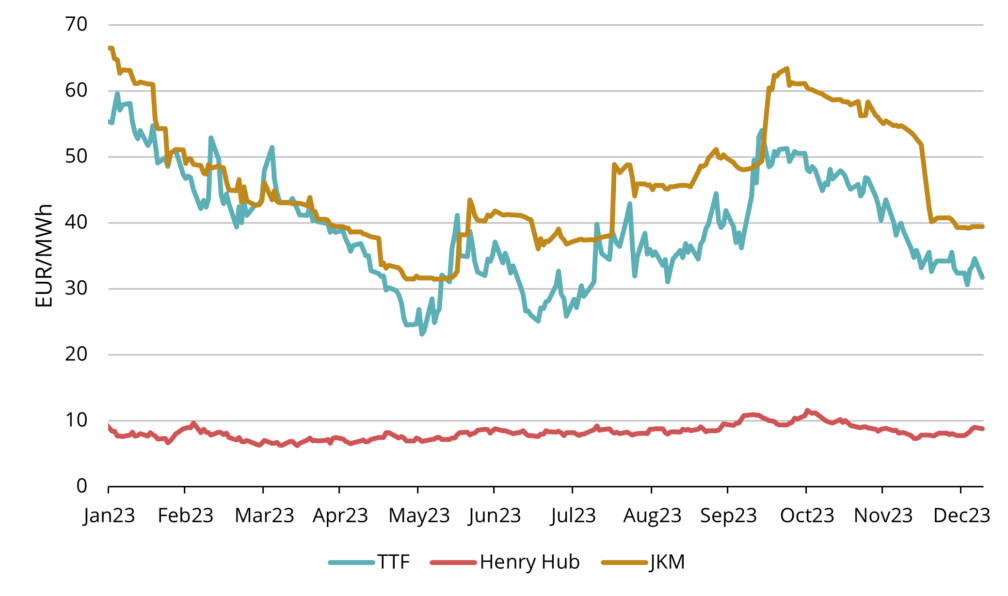Margus Kaasik: Energy policy choices need to be pragmatic
Opinion
Aivar Kokk, Chairman of the Economic Affairs Committee of Parliament, recently wrote in Postimees about the need to make the right choices in developing renewable energy in Estonia. He also acknowledged that politicians play a very important role in creating a competitive energy market, as said market is highly regulated and state-controlled. Indeed, in the recent past, not a single power plant has been constructed in Estonia or in nearby countries without state support.
The relative importance of renewable energy is steadily increasing, and the European Union’s goal is to reach CO2-free energy production by 2050. That deadline, however, is still far away and until then, other avenues of the energy sector should not be overlooked on the state level. Natural gas demonstrates its viability all over the world – it is a convenient, clean and affordable fuel. Natural gas is seen as a bridge between today’s energy and future carbon-free energy.
Europe’s gas consumption has grown significantly in recent years. This signals that, while Europe supports and develops renewable energies, it also takes a versatile and pragmatic approach to energy consumption and does not ignore the benefits of using natural gas. A similar level of balance and reasonableness should be applied in Estonia. Although the insulation of buildings is increasingly efficient and the need for domestic heating is decreasing, the importance of gas as an industrial fuel and gas as a transport fuel increases.
Both the mental block against the Russian origin of the gas, and the long-cultivated fears with regards to energy security, have hampered the development of the Estonian natural gas market. In the light of an agreement under discussion between the European Commission and Gazprom defining clear game rules for the gas giant inter alia the purposes of operating in the Estonian market, it is a good moment to assess whether the alleged security threat is substantiated or if it is rather based on myths or populism.
Gazprom has sold its stake in the local gas market to Estonian owners. On a daily basis, co-operation with the Eastern neighbour is clearly in line with the principles of market economy, one party sells, the other buys and the transaction is conditional on mutually satisfactory prices. Security policy fears – if Russia wants, they can leave Estonia in the cold – are unfounded today. The capacity of the Klaipėda LNG terminal, “fuelled” by Statoil, is about four billion cubic meters of gas annually, which also accounts for around 0.5 billion cubic meters of gas per year consumed in Estonia.
Therefore, it is not really for Russia to decide whether or not gas is consumed in Estonia. And as the President of Lithuania, Dalia Grybauskaite, emphasized two years ago – the gas terminal in Klaipeda is not only an energy project, but also a geopolitical project that will ensure the energy security of the Baltic region. The Lithuanian-Polish gas connection, as well as the planned Balticconnector between Estonia and Finland will guarantee additional security.
One of the outputs of international cooperation is the construction of a network of LNG terminals – on the one hand a large Baltic terminal and, on the other, smaller terminals that can be built in each country.
One of the largest LNG terminals in the region is Klaipeda Floating Terminal. As it will not disappear in the near future, this could call into question the creation of another additional large terminal in the Baltics. While we can continue to use the benefits of the Klaipeda terminal, leaving the maintenance costs of the terminal to Lithuanian consumers, we should not complain about the situation.
Nevertheless, there should definitely be a smaller terminal in Estonia. When stocking and shipping small quantities of gas, transport costs are important, thus a local terminal could help save both money and time. Eesti Gaas delivers the necessary LNGs to Tallink’s Megastar from across the boarder based on a just-in-time method, and servicing one vessel by these means is feasible. As LNG has a great future perspective in terms of marine and land transport fuel, the creation of a national LNG reserve becomes topical. An LNG terminal in Estonia would increase the attractiveness of local ports and provide an additional security guarantee, which is why the Estonian State could consider stronger support for the Estonian LNG terminal.
The development of the global gas market clearly signals that the importance of natural gas as a fuel should not yet be downplayed. In a situation where the Estonian state is concerned about the excessive burden of renewable energy subsidies, local people are disturbed by intensive clear-cutting for simple heating purposes, and the lion’s share of electricity produced in Estonia is still at the forefront in terms of the quantity of CO2 involved, natural gas with its low emission indicators and high calorific value continues to provide for a good alternative.

